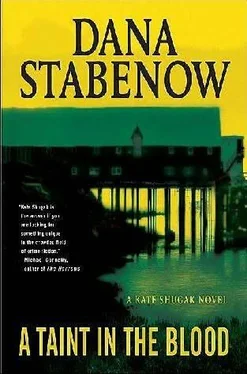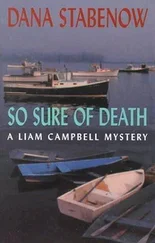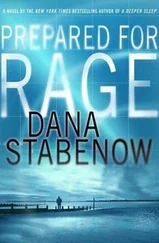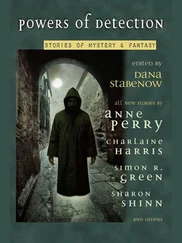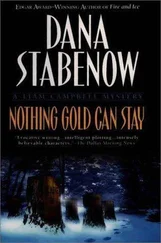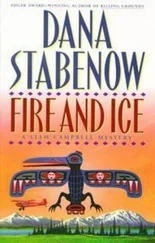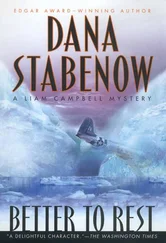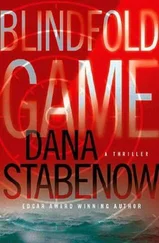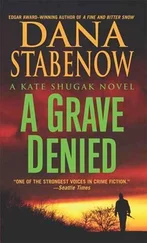The investigation turned up signs of arson right away, “like it always does,” Max said. “I know the jails aren’t filled with smart people, but I think arsonists have to be some of the dumbest of the bunch. You get a halfway-bright investigator with a decent lab backing him up, you’re always going to know if it’s arson. But all the arsonist is thinking about is getting on a plane to Hawaii with the insurance check in his pocket.” He shook his head. “Nature’s optimist, that’s an arsonist, every time. Well, except when they’re firebugs.”
“Pyromaniacs,” Kate said.
“That’s what I said, firebugs,” Max said.
So they found an accelerant, Max said, in this case gasoline, which the lab identified as being the same gas that was in Victoria’s car.
“Did the car have a locking gas cap?” Kate said.
“A what?” Max said.
“Never mind,” Kate said, “keep talking.”
“Troopers were doing the investigating, because Butte didn’t have a police force and the city limits didn’t even include Eagle River at that time. I was in the office the day they found out about the insurance policies Victoria Muravieff had taken out on her children.”
“What did you think?”
Max snorted. “What do you think I thought? I thought the same thing the investigating officer thought. I thought two million dollars was a hell of a motive for murder. So they brought her in.”
“She didn’t confess.”
“She didn’t say much of anything at all. She called her brother and he got her an attorney. Then we went to court and she went to jail.”
“What about her husband?”
“That would be Eugene,” Max said. He seemed to savor the name.
“Eugene Muravieff,” Kate said.
“Ah yes, Eugene. You know the Muravieffs.”
“We’ve howdied at the AFN convention, but I don’t think you could say we’ve shook,” Kate said.
Max nodded. “Think their shit don’t stink.”
“I wouldn’t put it quite like that,” Kate lied.
Max barked out a laugh and conjured up another martini. His eye had lost none of its keenness, his words none of their bite. Amazing. “From what I heard as the investigation went back then, Victoria and Eugene had a relationship that looked from the outside more like an armed truce than it did a marriage.”
“Unfriendly, were they?”
Max stroked his chin. “Wouldn’t say that, exactly. You ever read up on the Civil War?”
“A little,” Kate said. “You can’t avoid it.”
Max snorted. “Know what you mean. They’re still fighting that war in the South. Anyway, used to be a hobby of mine, and I remember one of the things I read about was that in the middle of a battle-maybe it’d be Christmas, or maybe it wouldn’t even be a holiday-they’d call a truce, say for twenty-four hours. And for that twenty-four hours, brothers on opposing sides would step out into the no man’s land between the lines and call out messages to each other, news about the family and friends, who was still living, who’d died. And then the truce would be over and they’d go back to killing each other. That was Victoria and Eugene’s marriage, no man’s land, with the occasional truce and some communication, but mostly shooting and a lot of blood.”
“What was the trouble?” Kate said. The Muravieff family was a pretty uptight bunch, born-again Christians, going back to the first Baptist minister to arrive in Sitka willing to go up against the local Russian Orthodox priest. Of course, Eugene Muravieff could have suffered from PK syndrome. The PK stood for “preacher’s kid.” In high school, Kate had watched the daughter of the pastor of the Niniltna Little Chapel go from singing soprano in the choir to cooing seductively at the varsity basketball team. She dropped out of school suddenly in the middle of her senior year and was not seen in Niniltna again. Her parents said that she had won a scholarship to a private school whose graduates were guaranteed admission to the Ivy League, and they left the following June when the pastor’s contract with the chapel was up.
At the keggers in the dorms at UAF, it was the same thing; the heartiest partiers were always the kids from the most straitlaced backgrounds. Yeah, she could see a guy like Eugene turning into a rounder, something a WASP like Victoria Bannister couldn’t and wouldn’t put up with.
“What do you think was the problem,” Max said, heavy on the sarcasm.
Kate readjusted her ideas. “Because she was white and he was Native?”
Max looked at her, not without pity. “You’re awful young, aren’t you?”
“Thirty-five,” Kate said. She had to admire how he had put her on the defensive.
“Then you should clean the wax out of your ears when your elders are talking,” Max said, not without relish. “You think because Natives got land and money now that they always did. Back when Victoria married Eugene, ANCSA was barely a twinkle in Willie Hensley’s eye. Anybody who was anybody in the state was white, and white didn’t share power with Natives, didn’t socialize with Natives, and white sure as hell didn’t marry Native. In particular, the Bannisters and Pilzes didn’t marry Native. This would be mostly in the big towns,” he added parenthetically. “In the villages, it was different.”
“No white women in the villages,” Kate said.
“Bingo,” he said, firing a gnarled finger at her. The bartender, listening in, took that as a sign and brought over another martini, and, for the first time all afternoon, refreshed Kate’s club soda.
“Alaska had been a state for less than ten years when Victoria told her parents she was marrying Eugene. Some people still had ”No Dogs or Natives“ signs in their store windows. The Bannisters would never have gone that far-they needed the customers, and Alaska Natives spent as much money on groceries as anyone else-but the no-no was there for anyone to see. Except Victoria evidently didn’t.”
“How did they meet?”
“Beats me.”
“Three kids,” she said. “They were married for a while.”
“Yeah,” Max said. “Surprising, when you think of the pressure they must have been under.”
“Her parents support the marriage?”
“In public, I never heard different.”
“His parents?”
“Same thing. Gossip had it that they weren’t any happier about the marriage than the bride’s family was, being as how Eugene was a bona fide war hero who could have done a lot better for himself than a daughter of someone who wouldn’t sit next to an Eskimo in a movie theater because they smelled. But one thing the two families had in common was the ability to keep family conflict private. Who knows what went on behind closed doors. I’m just surprised Muravieff didn’t bail sooner.”
“Why didn’t they divorce right away?”
Max rolled his eyes. “You didn’t divorce back then, Shugak, especially if you were a Bannister or a Muravieff. Bannisters were old-line Catholics and the Muravieffs were born-again Christians trying to live down their Native heritage. What?” This as Kate frowned.
“I still don’t see how you get race as a contributory factor in the breakdown of the marriage.”
“You sound like a social worker,” Max said. “And you don’t see it because you don’t know the whole story.”
“Why am I buying martinis by the keg for you, old man,” Kate said in mock indignation, “if you’re not telling me everything?”
Max grinned. “Well, hell, girl, I figured it was ‘cause you were falling madly in love with me and willing to put up with just about anything so you could jump my bones.”
Kate grinned back. She liked this quintessential Alaskan old fart. He reminded her of Old Sam Dementieff. “Good guess.”
Читать дальше
